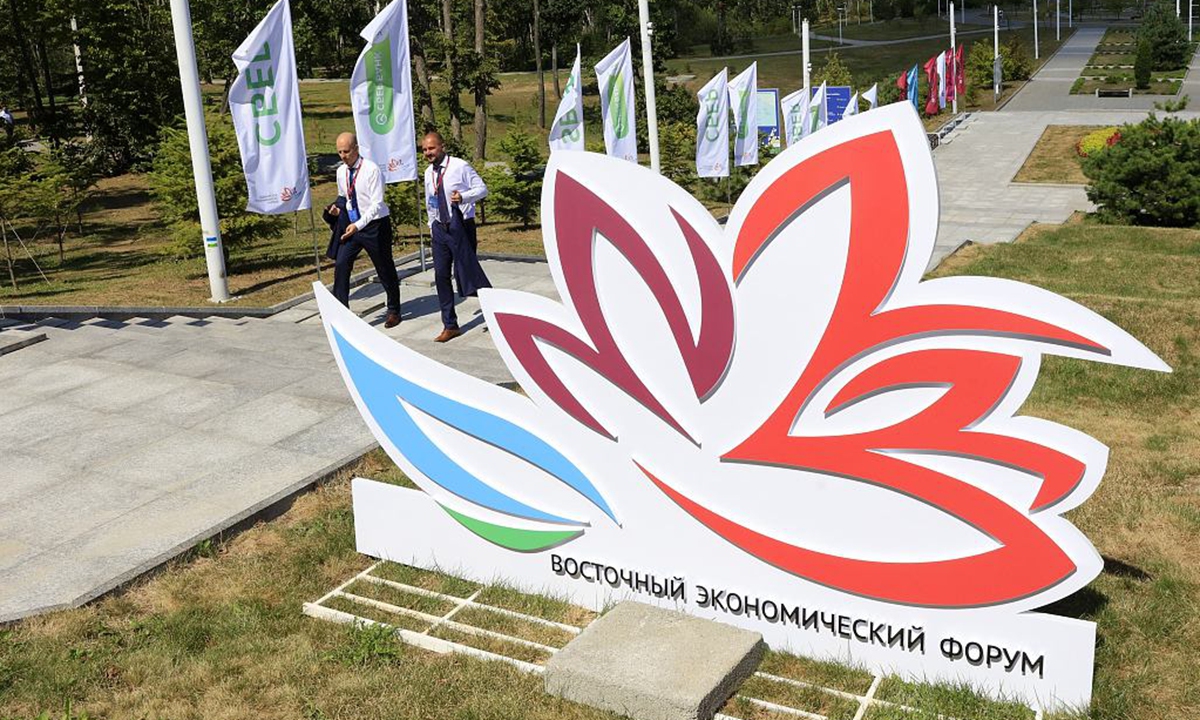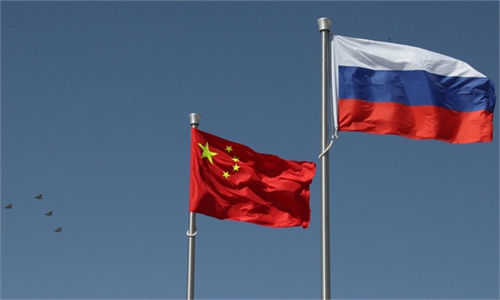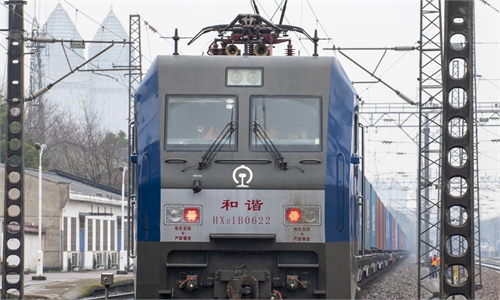US-led West wages info war against Russia, China with rich resources, same tactics: EEP sub-forum

Eastern Economic Forum Photo: VCG
Attendees to a Tuesday sub-forum of the ongoing 2022 Eastern Economic Forum (EEP) discussed and unfolded the resources the US-led West monopolized, and the tactics it has mastered to wage an information war, at a time when they cast more frequent and intense slander against Russia and China.
Panelist Daniel Ortega, media coordinator from the communication and citizenship council of the Republic of Nicaragua, first underlined the double standards of the West, a topic echoed by other attendees including Russian Foreign Ministry's spokesperson and director of the information and press department Maria Zakharova.
The West see bloggers qualified as media as long as they convey the messages in line with Western narratives, but when Russian bloggers do the same thing to defend a different narrative, they are not taken seriously and their accounts get blocked.
Ortega also mentioned how so-called independent journalists worked in Nigaragua under sponsorship of the West and their involvement in money laundering in their "reporting" operation.
Such a practice is commonly used by the West to slander a country, said Zakharova, noting that looking at the global media sources the West owns, the newspapers and TV channels and many other outlets have dominated communication with the global audience.
More importantly was about the social media, which was not only about information but also about the platforms that are owned and manipulated by some Western giants.
Zakharova pointed out the reality that any places across the globe, when connected to the Western-dominated information landscape, have to accept one-way communication - Western information to other places - rather than two-way exchanges.
A recent example is how Russian news outlets were sanctioned and blocked after it started the military operation against Ukraine. The information war was presented to the public more drastically than ever as fake pictures and footages circulating everywhere are tailored to Western narrative against Russia, according to the panel.
Another viewpoint presented by a panelist from a Chinese news outlet was that "Unlike many people's belief that real war comes first and information war comes second, the West has long been waging an information war in advance to shape and lead a real war."
The information war against China started as early as 1990s through the "China threat" theory. In recent years, such attacks have been extended to affairs related to China's Hong Kong, Xinjiang and Taiwan regions.
The West launched the war in following steps - starting a narrative even if the news was faked because the sphere of public opinion is shaped on the first news on a certain topic.
The West then uses their monopoly in information landscape to silence the non-West information - blocking Russian accounts on Twitter, Facebook and other platforms after the Russia-Ukraine conflict. The same tactic is used in Western information war against China - tagging accounts from Chinese agency as "affiliated with state news outlets."
Such tagging has an implication that the news contents may be "propaganda," an impression the West created for its audience through decades of information war against countries of different systems by depicting them as "authoritarian."
The Chinese panelist cited another example of how reporters with Western outlets, who are supposed to understand and cover what's going on in Chinese society, turned a blind eye to a documentary on counter-terrorism efforts in Xinjiang region, which prompted heated discussions among Chinese public.
By creating two opposite camps, the US-led West coerces neutral countries to take sides in the Russia-Ukraine conflict, the same way as US forcing ASEAN members and Pacific island countries to side with Washington.
To tackle the Western hegemony in narrative and sphere of public opinion, panelists at the sub-forum agreed that facts may run slower than West-started rumors, but they last longer. The international society will naturally seek for truth when they are tired of Western "brainwashing."
It is also important not to fall into Western-led cycle of attack and defend and fight the information war according to one's own pace. The best way to fight against US slander on human rights is to expose US' own bad records on the issue to the world, the Chinese panelist said.
The information war is a war of people, no matter how sweeping the Western narrative appears to be on West-dominated platforms, it cannot represent the entire international community. It is important to engage and let the voices of countries which expect peace and development, oppose hegemony and unilateral sanctions be heard because they are the majority, attendees said.


